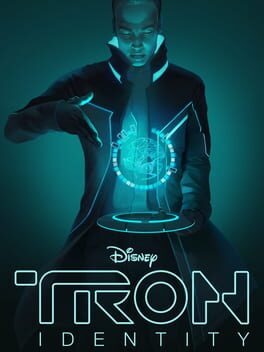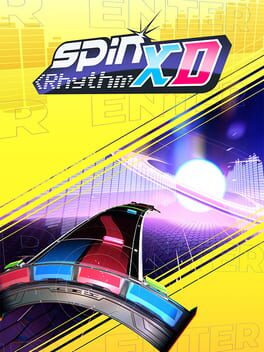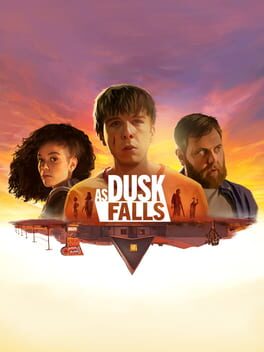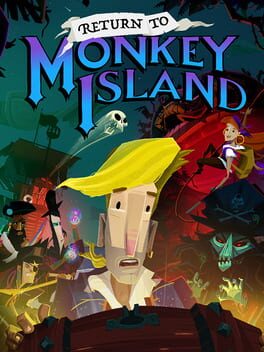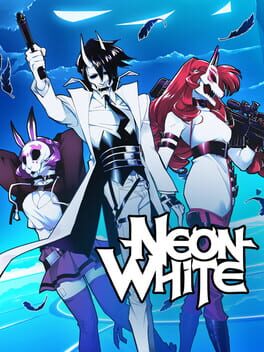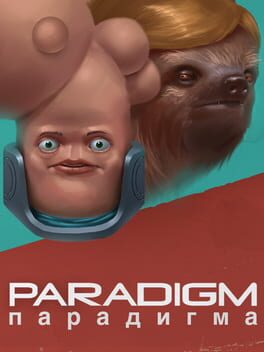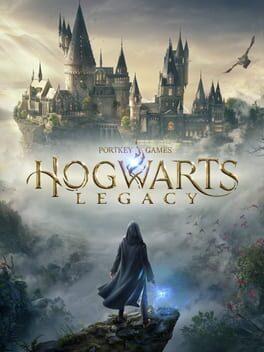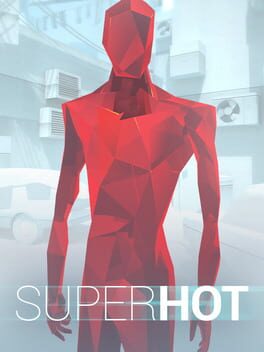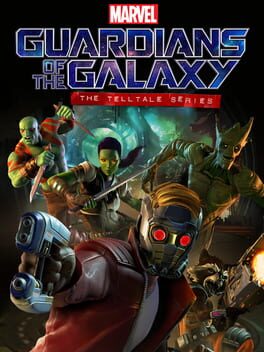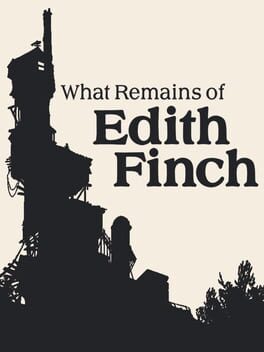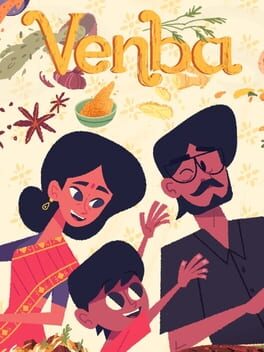Qreedence
2023
While Tron: Identity is a pretty brief experience, it certainly has a lot going for it. The characters were pretty well written, the art is fantastic and the story was interesting enough, but I felt like just as I was getting really into it and getting invested in the plot it just kind of... ended.
It does feature several branching paths and different possible outcomes, but I didn't feel compelled enough to play through the game again to see those.
It does feature several branching paths and different possible outcomes, but I didn't feel compelled enough to play through the game again to see those.
2019
Guitar Hero was my first rhythm game craze, I got so hooked on it that I wound up buying a real guitar and learning how to play, eventually even going to university to study music and working as a gigging musician and a music teacher. All this to say that I REALLY got into Guitar Hero. I've always looked out for more rhythm games to capture me the same way it did back in the day, but I haven't found one that does that. Until Spin Rhythm XD.
Instead of guitar-centric rock and metal tracks, this game features a ton of EDM, wubs and warbles and all of that. Not to mention the insane amount of custom tracks available - it seems like the game is garnering a pretty small albeit very passionate community.
Playing songs in this game feels very satisfying in a way that's very hard to describe, and even hard to convey in videos. This game might just become a mainstay in my rotation for the foreseeable future.
Instead of guitar-centric rock and metal tracks, this game features a ton of EDM, wubs and warbles and all of that. Not to mention the insane amount of custom tracks available - it seems like the game is garnering a pretty small albeit very passionate community.
Playing songs in this game feels very satisfying in a way that's very hard to describe, and even hard to convey in videos. This game might just become a mainstay in my rotation for the foreseeable future.
2022
There's so much to talk about with Elden Ring. There's the giant open world, which is at times breathtaking and awe-inducing but also at times rote and formulaic (you know you're going to find a tunnel with miners, catacombs with some undead enemies, caves with various wildlife, etc), but by the time the magic is starting to wear off, the game kicks into high gear and barrels through to the endgame.
It works incredibly well - the lore revelations and boss encounters, and "legacy dungeons" (what I understand to mean a Dark Souls-ass level, basically) happen with increased frequency toward the end, and it feels like the big payoff after spending over a 100 hours roaming the open world, adventuring and piecing together the lore of the Lands Between in an almost archeological manner, as you do in these FromSoft games - reading item descriptions, listening to cryptic NPC dialogue and trying to keep track of what different quests you're on at the moment, since the game doesn't track anything for you.
I kept notes on what characters wanted me to do for them, or any hints they provided as to where they might be headed, and it always felt rewarding seeking them out and finding them. On the flipside, it felt really bad when I accidentally progressed something too far, making other questlines completely inaccessible.
I've heard it mentioned elsewhere that this game, length-wise, is almost like a whole Dark Souls-trilogy in 1 game, and I'm inclined to agree. The Dark Souls-games usually take me between 30-50 hours to complete, and the timer was at 122 hours by the time the final credits rolled, and it is quite telling how captivated I am by this world when the thing I've been doing in the days after completing is diving deep into the lore and trying to learn more about everything I didn't pick up on, or things I simply didn't find.
I've said a lot of words about this game, but the long and short of it is that this is a game I'm going to remember for a long time.
It works incredibly well - the lore revelations and boss encounters, and "legacy dungeons" (what I understand to mean a Dark Souls-ass level, basically) happen with increased frequency toward the end, and it feels like the big payoff after spending over a 100 hours roaming the open world, adventuring and piecing together the lore of the Lands Between in an almost archeological manner, as you do in these FromSoft games - reading item descriptions, listening to cryptic NPC dialogue and trying to keep track of what different quests you're on at the moment, since the game doesn't track anything for you.
I kept notes on what characters wanted me to do for them, or any hints they provided as to where they might be headed, and it always felt rewarding seeking them out and finding them. On the flipside, it felt really bad when I accidentally progressed something too far, making other questlines completely inaccessible.
I've heard it mentioned elsewhere that this game, length-wise, is almost like a whole Dark Souls-trilogy in 1 game, and I'm inclined to agree. The Dark Souls-games usually take me between 30-50 hours to complete, and the timer was at 122 hours by the time the final credits rolled, and it is quite telling how captivated I am by this world when the thing I've been doing in the days after completing is diving deep into the lore and trying to learn more about everything I didn't pick up on, or things I simply didn't find.
I've said a lot of words about this game, but the long and short of it is that this is a game I'm going to remember for a long time.
2022
I've never been a die-hard fan of point & click adventure games, but somehow throughout the last few years I've ended up playing quite a few of them. The reasons most of them have for sticking are usually a combination of a story that's compelling enough to want to see through and puzzles that feel satisfying to solve.
Having said that, the plot in the previous Monkey Island games (of which I've played all) didn't really stick out in my memory at all. I could remember some vague things, like the characters and their broad characterizations, but as far as the events of the previous games go, it's all blank. And maybe that's ok.
The story this game tries to tell had me feeling kind of bummed out at the end of it, but after reflecting on it for some time I've come to appreciate just a tiny bit more.
Having said that, the plot in the previous Monkey Island games (of which I've played all) didn't really stick out in my memory at all. I could remember some vague things, like the characters and their broad characterizations, but as far as the events of the previous games go, it's all blank. And maybe that's ok.
The story this game tries to tell had me feeling kind of bummed out at the end of it, but after reflecting on it for some time I've come to appreciate just a tiny bit more.
2022
I was not at all prepared for how this game would grab me. I fired it up on GamePass in the evening, thinking I would try it out for like an hour or so and instead wound up sitting glued to the screen until 3 AM.
This text heavy visual novel-style of RPG is not really my jam traditionally, but I might have to go and check out Disco Elysium after playing through this, seeing as there have been quite a few comparisons between the two.
When I sensed the endgame approaching I desperately wanted the game to not be over. Luckily, even after completing all the major storylines the first chapter of the free DLC had been released, so I got to play through that as well to extend my session with this game. Will check back in October for the second chapter, without a doubt.
This text heavy visual novel-style of RPG is not really my jam traditionally, but I might have to go and check out Disco Elysium after playing through this, seeing as there have been quite a few comparisons between the two.
When I sensed the endgame approaching I desperately wanted the game to not be over. Luckily, even after completing all the major storylines the first chapter of the free DLC had been released, so I got to play through that as well to extend my session with this game. Will check back in October for the second chapter, without a doubt.
2022
There is so much to love about this game. Speedrunning at its core has never appealed much to me, but I guess it's quite a bit similar to something like a Super Meat Boy or Trials HD kind of thing where you're running the same level repeatedly until you eventually nail that one run.
All of the gameplay elements come together really nicely in a really high-paced package that just makes you feel like a badass when you pull some of these combos off. The one thing I could do without is the less-than-ideal writing.
2021
The first 20 or so hours of this game were like crack to me, I just couldn't stop playing to fill out that ever-expanding checklist of things to do to unlock more game mechanics, more weapons, more characters and more levels to do what is essentially some twin-stick shooting but with only one stick.
The gameplay of your weapons automatically firing off as you walk around felt kind of like a tower defense game, except you are the towers with all the weapons you're carrying around. Levelling up and getting stronger to the point of being a "whirlwhind of death" as I've seen it described is a very satisfying feeling.
When you reach the point of not being afraid of not completing a run, but instead patiently waiting to upgrade your character with a sense of inevitable victory the game kind of lost a bit of its charm, and it felt kind of like going through the motions of doing more and more runs just to keep unlocking things, but it kept me playing for about 35 hours before I felt like I had gotten my fill.
There have been two DLC-packs released that I've not checked out, maybe I'll play those in the future if I get the itch.
2017
It's clear that this game was made with a lot of passion and heart with most work being done by solo developer Jacob Janerka. That said, your enjoyment of this game will largely hinge on how much you gel with the particular brand of absurdist humor on display here.
There was an early scene that actually had me laughing out loud for two solid minutes and gave me hope that there would be more where that came from. Unfortunately, the game never quite reached the same heights for me.
Paradigm hews close to its point & click adventure genre conventions, while managing to streamline the experience somewhat. The puzzles were never weirdly obtuse and solutions have a logic to them that is satisfying enough to solve, and if you should happen to get stuck there's a really good hint system which keeps things appropriately vague while giving you just enough of a hint to not have to look something up.
I also adore the art style of the game, and seeing the next weird thing rendered in this style was a good enough propellant to keep going forward. As I stated at the top of the review though, your enjoyment of the game as a whole will depend on how the jokes land for you personally, and I'm sad to say that after that first hour nothing ever really hit for me in the same way.
There was an early scene that actually had me laughing out loud for two solid minutes and gave me hope that there would be more where that came from. Unfortunately, the game never quite reached the same heights for me.
Paradigm hews close to its point & click adventure genre conventions, while managing to streamline the experience somewhat. The puzzles were never weirdly obtuse and solutions have a logic to them that is satisfying enough to solve, and if you should happen to get stuck there's a really good hint system which keeps things appropriately vague while giving you just enough of a hint to not have to look something up.
I also adore the art style of the game, and seeing the next weird thing rendered in this style was a good enough propellant to keep going forward. As I stated at the top of the review though, your enjoyment of the game as a whole will depend on how the jokes land for you personally, and I'm sad to say that after that first hour nothing ever really hit for me in the same way.
2023
While sitting here and writing this review, I'm having a hard time articulating why I enjoyed playing through this game eventhough most of its components fell short for me.
The combat is serviceable, if somewhat messy at times due to the amount of spells you unlock and the few buttons you have available to map them on to and opponents frequently ambush you from off-camera.
The open world activities sprinkled in through the map, of which there are entirely too many, are mostly uninteresting. Overall, I think my main gripe against this game is that there is too much fluff. The main story is enjoyable enough, as are the relationship quests you take on to get to know your fellow students better. But there is so much meaningless filler that I decided pretty early on to ignore most of it, and the experience got a whole lot better after that.
Although it seems like my opinions on this game are pretty sour, I did enjoy the parts that were good about it. It just felt like it had a little too much filler tacked on.
The combat is serviceable, if somewhat messy at times due to the amount of spells you unlock and the few buttons you have available to map them on to and opponents frequently ambush you from off-camera.
The open world activities sprinkled in through the map, of which there are entirely too many, are mostly uninteresting. Overall, I think my main gripe against this game is that there is too much fluff. The main story is enjoyable enough, as are the relationship quests you take on to get to know your fellow students better. But there is so much meaningless filler that I decided pretty early on to ignore most of it, and the experience got a whole lot better after that.
Although it seems like my opinions on this game are pretty sour, I did enjoy the parts that were good about it. It just felt like it had a little too much filler tacked on.
2016
For me, the Telltale formula has worn out its welcome a bit and I won't lie - some parts of this game were a bit of a slog to get through. But playing this made me realize that the thing that Telltale games do best - cutscenes and dialogue choices - is what the games should focus on.
The parts of the game where you're walking around and solving very rudimentary puzzles in a perfunctory manner feel like they were there to satisfy some sort of quota of "gameplay", where in reality I don't think anybody actually goes to Telltale games for that stuff.
Having to make actual hard decisions, and having the story and writing be good enough to actually make those decisions hard, is the heart of the game and in those regards I was very on board. I just wish there was less of the things that didn't work well. Admittedly, it feels like the amount of walking around and puzzle solving is very low in this game, but there could've been less.
The parts of the game where you're walking around and solving very rudimentary puzzles in a perfunctory manner feel like they were there to satisfy some sort of quota of "gameplay", where in reality I don't think anybody actually goes to Telltale games for that stuff.
Having to make actual hard decisions, and having the story and writing be good enough to actually make those decisions hard, is the heart of the game and in those regards I was very on board. I just wish there was less of the things that didn't work well. Admittedly, it feels like the amount of walking around and puzzle solving is very low in this game, but there could've been less.
2023
This game has become quite divisive in the Final Fantasy community, with many regarding it as something that doesn't belong in the same series as its predecessors. The gameplay has taken a completely new direction, being a single character-driven, action-focused Devil May Cry-style game.
While that may be offputting to some, I myself have never been all that invested in the Final Fantasy franchise - never having completed a single entry. I've played through most of FFX, most of FFXIII and tried to play FFVII multiple times but was never able to see it through to its conclusion.
I think when seen through this lens, it becomes easy to see why this game has tended to be seen for what it isn't, rather than what it actually is. So I will try to provide that perspective and judge the game on its own merits, rather than what I was hoping it to be.
The demo that was released a few weeks prior to release was packed full of Game of Thrones-isms and a lot of moving pieces, but it actually managed to make me interested and even invested into this world of Valisthea and all its history. And as the game itself progressed, I was fully on board. While this game has received lots of complaints, I feel like the story isn't one of them.
The sheer scale of protagonist Clive's adventures keeps expanding, in an Asura's Wrath-like fashion, and you keep finding yourself fighting battles in ever increasing proportions of ridiculousness.
The combat itself falls into the category of simple to play, hard to master. I was of the opinion that it wasn't particularly that deep, and that is especially true of the Eikon battles, where you essentially turn into a kaiju to fight this game's version of the iconic Final Fantasy summons. But I've seen plenty of videos of people pulling off ridiculous never-ending combos that I myself could never hope to pull off, so I have to concede that there is a lot to play with if you put enough time and effort into it. While that was cool, the combat was never why I was playing this game to begin with, so I never mastered it in that manner.
With all that said, the main story and the combat are great and pretty good respectively, that just leaves talking about the ancillary systems and content of the game.
There is gear and crafting, though both of those systems are pretty shallow. You won't be picking up tons of different gear and comparing stats, you will mostly be crafting a new sword and some new armor after every major story beat to keep your strength on pace with the rest of the world.
There are sidequests, and I would be remiss to not mention how much I appreciated them. Sure, the actual gameplay element of the sidequests is usually completing some menial task (fetch this wooden plank, go find some flower in another zone, go clear this camp of enemies, etc), but the reward for doing them is not what you receive upon completing it, but the character dialog providing world building and context to so many small things in the world of Valisthea. I actually set a timer when doing one of the sidequests in the endgame. The ratio of gameplay to cutscene was something like 5 minutes of gameplay, 20 minutes of cutscenes. That was worthwhile to me at least, though I can certainly see why someone would hold a differing perspective.
The hunts on the other hand are what I believe to be the weakest side content in the game. There's a board in your hub area that displays monsters and gives a vague description of their location, and you go find them and kill them for some gil and renown. The rewards are barely worth it and the fights themselves are not that impressive, but I still did them all to satisfy my completionist mindset.
All in all, I spent nearly 70 hours completing the game where I did every single side quest, crafted the beast gear, did all the hunts, and finished the story. While the parts of the game that are technically gameplay fell a little short of being amazing for me, the story more than made up for it and I was definitely invested all the way through.
While that may be offputting to some, I myself have never been all that invested in the Final Fantasy franchise - never having completed a single entry. I've played through most of FFX, most of FFXIII and tried to play FFVII multiple times but was never able to see it through to its conclusion.
I think when seen through this lens, it becomes easy to see why this game has tended to be seen for what it isn't, rather than what it actually is. So I will try to provide that perspective and judge the game on its own merits, rather than what I was hoping it to be.
The demo that was released a few weeks prior to release was packed full of Game of Thrones-isms and a lot of moving pieces, but it actually managed to make me interested and even invested into this world of Valisthea and all its history. And as the game itself progressed, I was fully on board. While this game has received lots of complaints, I feel like the story isn't one of them.
The sheer scale of protagonist Clive's adventures keeps expanding, in an Asura's Wrath-like fashion, and you keep finding yourself fighting battles in ever increasing proportions of ridiculousness.
The combat itself falls into the category of simple to play, hard to master. I was of the opinion that it wasn't particularly that deep, and that is especially true of the Eikon battles, where you essentially turn into a kaiju to fight this game's version of the iconic Final Fantasy summons. But I've seen plenty of videos of people pulling off ridiculous never-ending combos that I myself could never hope to pull off, so I have to concede that there is a lot to play with if you put enough time and effort into it. While that was cool, the combat was never why I was playing this game to begin with, so I never mastered it in that manner.
With all that said, the main story and the combat are great and pretty good respectively, that just leaves talking about the ancillary systems and content of the game.
There is gear and crafting, though both of those systems are pretty shallow. You won't be picking up tons of different gear and comparing stats, you will mostly be crafting a new sword and some new armor after every major story beat to keep your strength on pace with the rest of the world.
There are sidequests, and I would be remiss to not mention how much I appreciated them. Sure, the actual gameplay element of the sidequests is usually completing some menial task (fetch this wooden plank, go find some flower in another zone, go clear this camp of enemies, etc), but the reward for doing them is not what you receive upon completing it, but the character dialog providing world building and context to so many small things in the world of Valisthea. I actually set a timer when doing one of the sidequests in the endgame. The ratio of gameplay to cutscene was something like 5 minutes of gameplay, 20 minutes of cutscenes. That was worthwhile to me at least, though I can certainly see why someone would hold a differing perspective.
The hunts on the other hand are what I believe to be the weakest side content in the game. There's a board in your hub area that displays monsters and gives a vague description of their location, and you go find them and kill them for some gil and renown. The rewards are barely worth it and the fights themselves are not that impressive, but I still did them all to satisfy my completionist mindset.
All in all, I spent nearly 70 hours completing the game where I did every single side quest, crafted the beast gear, did all the hunts, and finished the story. While the parts of the game that are technically gameplay fell a little short of being amazing for me, the story more than made up for it and I was definitely invested all the way through.
I never expected to enjoy a game in this genre to this extent. When it was next up on the docket while plowing through my backlog, I figured I'd give it half an hour or so and probably put it back down and move on to the next item on the backlog.
I'm very happy to have been so wrong though. In the walking simulator space, which I guess this would fall into, the story is almost the whole reason for playing. What I found so interesting though is that normally, you're kind of an archeologist walking through a space where things have happened - you're just there to piece together the story.
Edith Finch ostensibly follows that same structure, but throws its own unique twists in there. The game starts off with literally getting to an abandoned house and slowly piecing together what happened, but the way in which you experience those stories, kind of like little vignettes, is that you're transported back in time and experience the stories from the point of view of whoever that particular story is about.
I don't want to get too dep into the specifics of the story, as piecing together what was happening is kind of the only reason to play a game like this, but I was definitely invested from very early on. My one quibble with the story might be that the ending may have been a little rushed for my tastes, the dust not getting enough time to settle.
I'm very happy to have been so wrong though. In the walking simulator space, which I guess this would fall into, the story is almost the whole reason for playing. What I found so interesting though is that normally, you're kind of an archeologist walking through a space where things have happened - you're just there to piece together the story.
Edith Finch ostensibly follows that same structure, but throws its own unique twists in there. The game starts off with literally getting to an abandoned house and slowly piecing together what happened, but the way in which you experience those stories, kind of like little vignettes, is that you're transported back in time and experience the stories from the point of view of whoever that particular story is about.
I don't want to get too dep into the specifics of the story, as piecing together what was happening is kind of the only reason to play a game like this, but I was definitely invested from very early on. My one quibble with the story might be that the ending may have been a little rushed for my tastes, the dust not getting enough time to settle.
2023
To set expectations accordingly, go into this expecting an interactive Pixar movie, in both time spent and how similarly they can tug at your heartstrings depending on how you relate to the source material.
I didn't know too much about this game before playing it, just that it had gotten some critical acclaim but also some negative feedback regarding its length. I didn't mind the length at all. On the contrary, I felt like it wrapped up just when it should have.
The story is about an immigrant couple from India trying to make a new life for themselves in Canada, with all of what that entails. As a third culture kid, a lot of the themes resonated pretty heavily with me even if the specifics were sometimes different. But the core of the story, trying to fit in at the expense of shunning your close ones, is something I think a lot of people can relate to even without sharing a similar background.
I haven't touched on the gameplay at all; that's because it's of secondary importance to the story being told, and frankly there's not a whole lot to talk about in regards to it. Most of the gameplay segments revolve around cooking, where you have to follow the titular Venba's mother's somewhat-damaged recipe book to make some insanely delicious looking Tamil dishes. It's not hard, and if you fail you just try again immediately. The cooking exists as a bonding device between loved ones, and it definitely manages to pack an emotional punch. I'm trying not to go into specifics as I definitely believe the story is something everyone should get to experience for themselves.
All in all, a wonderful little package.
I didn't know too much about this game before playing it, just that it had gotten some critical acclaim but also some negative feedback regarding its length. I didn't mind the length at all. On the contrary, I felt like it wrapped up just when it should have.
The story is about an immigrant couple from India trying to make a new life for themselves in Canada, with all of what that entails. As a third culture kid, a lot of the themes resonated pretty heavily with me even if the specifics were sometimes different. But the core of the story, trying to fit in at the expense of shunning your close ones, is something I think a lot of people can relate to even without sharing a similar background.
I haven't touched on the gameplay at all; that's because it's of secondary importance to the story being told, and frankly there's not a whole lot to talk about in regards to it. Most of the gameplay segments revolve around cooking, where you have to follow the titular Venba's mother's somewhat-damaged recipe book to make some insanely delicious looking Tamil dishes. It's not hard, and if you fail you just try again immediately. The cooking exists as a bonding device between loved ones, and it definitely manages to pack an emotional punch. I'm trying not to go into specifics as I definitely believe the story is something everyone should get to experience for themselves.
All in all, a wonderful little package.
